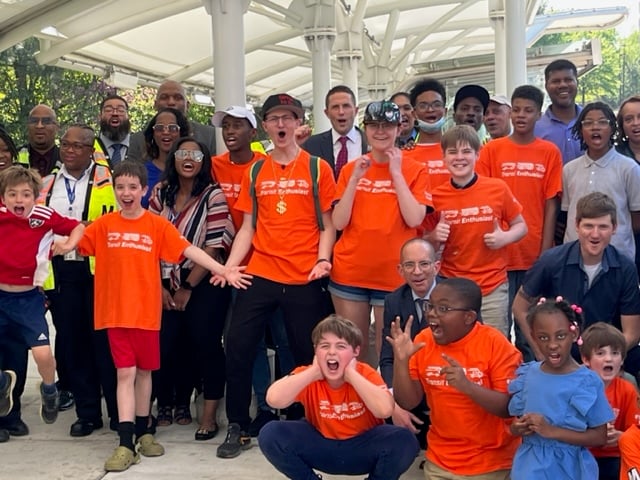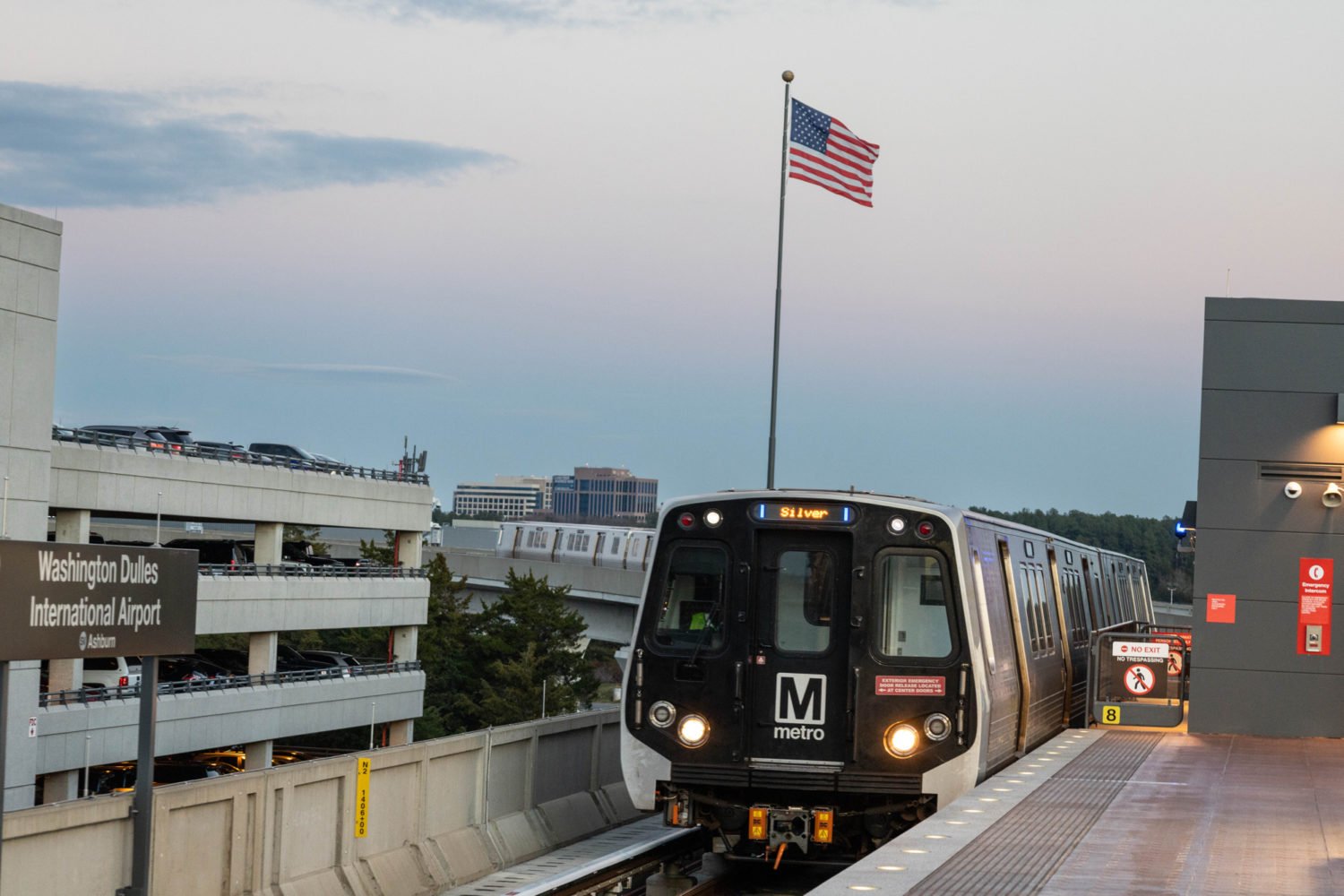The voice behind “step back, doors closing” and other WMATA announcements is practically ingrained into our brains at this point. For that reason, some unfamiliar voices coming over station speakers the past few weeks may have caught your attention.
What’s the story there? The answer is pretty heartwarming: They come from local children who are on the autism spectrum. Throughout April, their prerecorded announcements have been helping honor Autism Awareness Month while also highlighting the unique connection many young people with autism have to trains and transit.
“A common behavior [in children with autism] is an intense focus on things that are asocial to neurotypical people and these include modern feats of engineering that you might encounter every day, especially trains,” says Jonathan Trichter, the founder of the project. “That’s a phenomenon that’s familiar with frontline transit workers who see those kids often taking their families on joy rides to nowhere or asking them complex questions about the transit system.”
Given this unique connection, Trichter—whose life has been personally touched by someone with autism—thought it’d be meaningful to have such children engage with the public by recording these service announcements. After he and New York City’s MTA successfully collaborated last year, he reached out to WMATA to propose a similar project.
“Metro got back to me faster than my wife returns my texts—and my wife is pretty responsive,” said Trichter. “One of the things that this project does is allows transit agencies to honor the special relationship that they have with the children who are neurologically different.”
About 1 in 36 children has been identified with autism spectrum disorder, according to the CDC’s Autism and Developmental Disabilities Monitoring (ADDM) Network. Trichter hopes these announcements can help normalize neuroatypical children in everyday places.
“Hearing these announcements [in] the mass transit and systems that we all use to get to work and move around every day, I think there’s a huge piece of acceptance to that,” said Trichter.
You can hear messages play every hour at the five-, 15-, 35-, and 50-minute mark inside Metro stations. Or, listen to a few of them here:
Cal, age 6:
Aubrey, age 15:
Elias, age 7:
Benjamin, age 16:



















